Foods That Help With Digestion
The human gut is often referred to as the body's "second brain," playing a crucial role in overall health and well-being. This complex system, made up of your stomach, intestines, and various digestive organs, is responsible for breaking down food, absorbing nutrients, and eliminating waste. However, its influence extends far beyond digestion; a healthy gut can impact your immune system, mental health, and even weight management. To maintain this vital system, incorporating certain foods into your diet can be transformative. In this article, we explore 10 digestive dynamo foods that can help you achieve a happier, healthier gut.
1. Fermented Foods: Nature's Probiotics

Fermented foods, such as yogurt, kefir, sauerkraut, and kimchi, are rich in beneficial bacteria known as probiotics. These microorganisms help balance the gut microbiome, which is essential for optimal digestion and nutrient absorption. Probiotics can enhance gut health by reducing inflammation, boosting immunity, and even alleviating symptoms of digestive disorders like irritable bowel syndrome (IBS). Regularly consuming fermented foods can increase the diversity of gut flora, which is linked to improved mood and mental health. By incorporating these tangy, flavorful foods into your diet, you’re nurturing a thriving gut ecosystem.
2. Fiber-Rich Fruits: The Digestive Cleanse
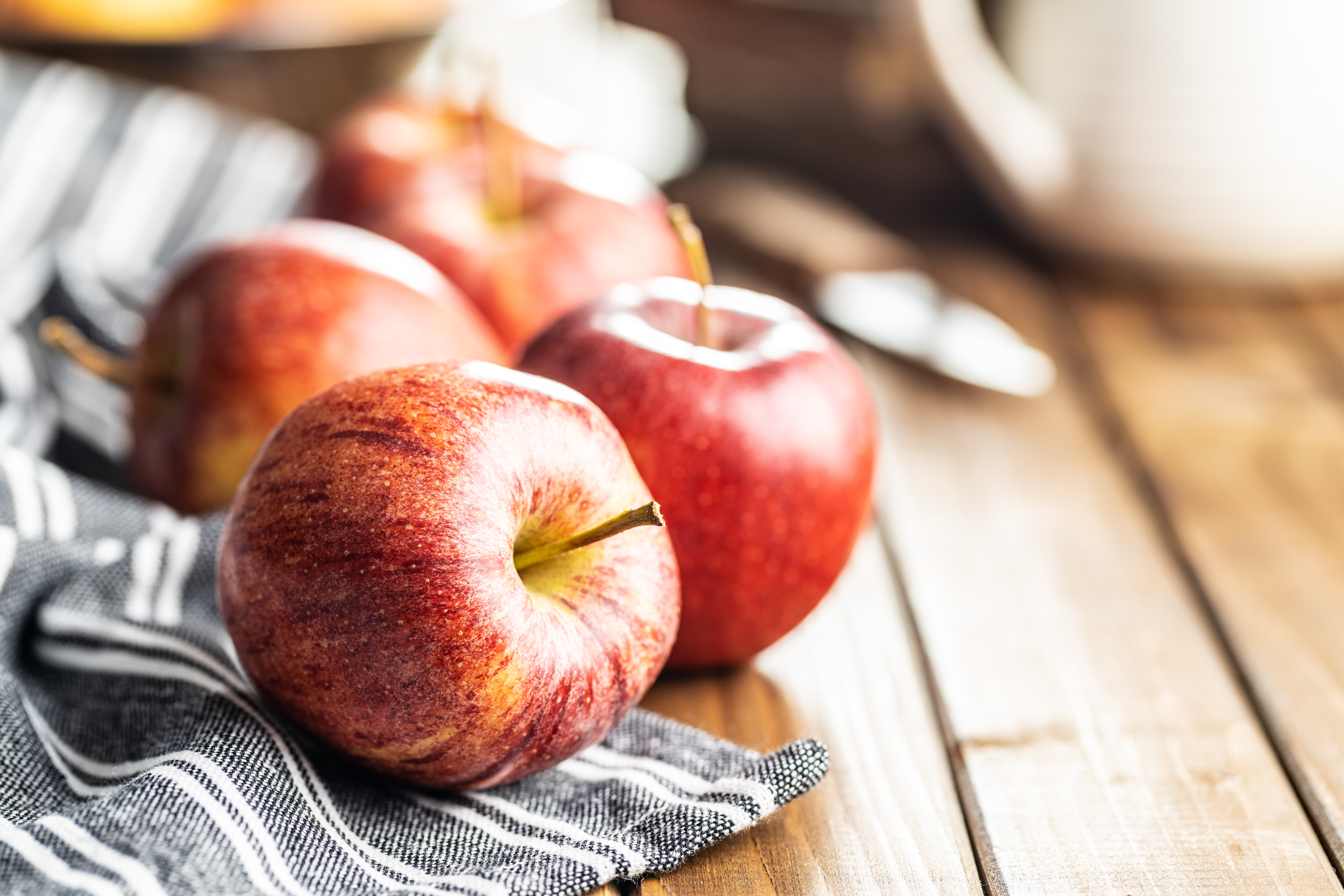
Fruits high in dietary fiber, such as apples, pears, and berries, are excellent for promoting regular bowel movements and preventing constipation. Fiber acts like a broom, sweeping through the digestive tract and helping to maintain bowel health. Soluble fiber, found in fruits like oranges and bananas, dissolves in water to form a gel-like substance, slowing digestion and allowing for better nutrient absorption. Meanwhile, insoluble fiber adds bulk to the stool, aiding in its passage through the gut. By indulging in a variety of fiber-rich fruits, you support a balanced digestive process and a healthy gut environment.
3. Whole Grains: Sustenance for Gut Bacteria
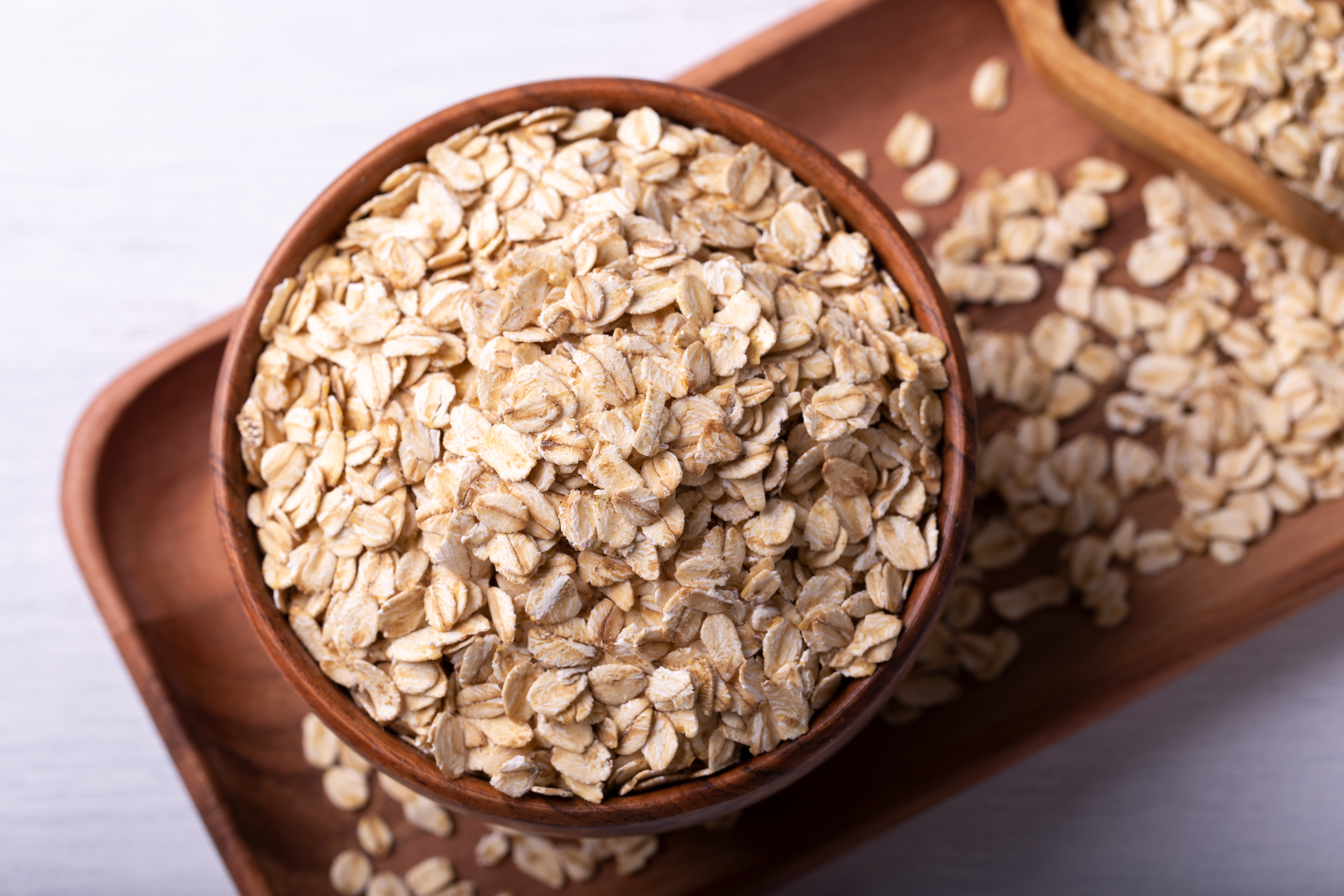
Whole grains like oats, quinoa, and brown rice are packed with fiber and essential nutrients that feed the good bacteria in your gut. These grains contain prebiotics, which are non-digestible fibers that act as food for probiotics. By nourishing beneficial bacteria, whole grains help maintain a balanced gut microbiome, which is crucial for digestive health. Furthermore, the slow digestion of whole grains provides a steady release of energy, preventing blood sugar spikes and keeping you full longer. Including whole grains in your meals can support gut health, reduce inflammation, and improve metabolic functions.
4. Leafy Greens: A Nutrient Powerhouse
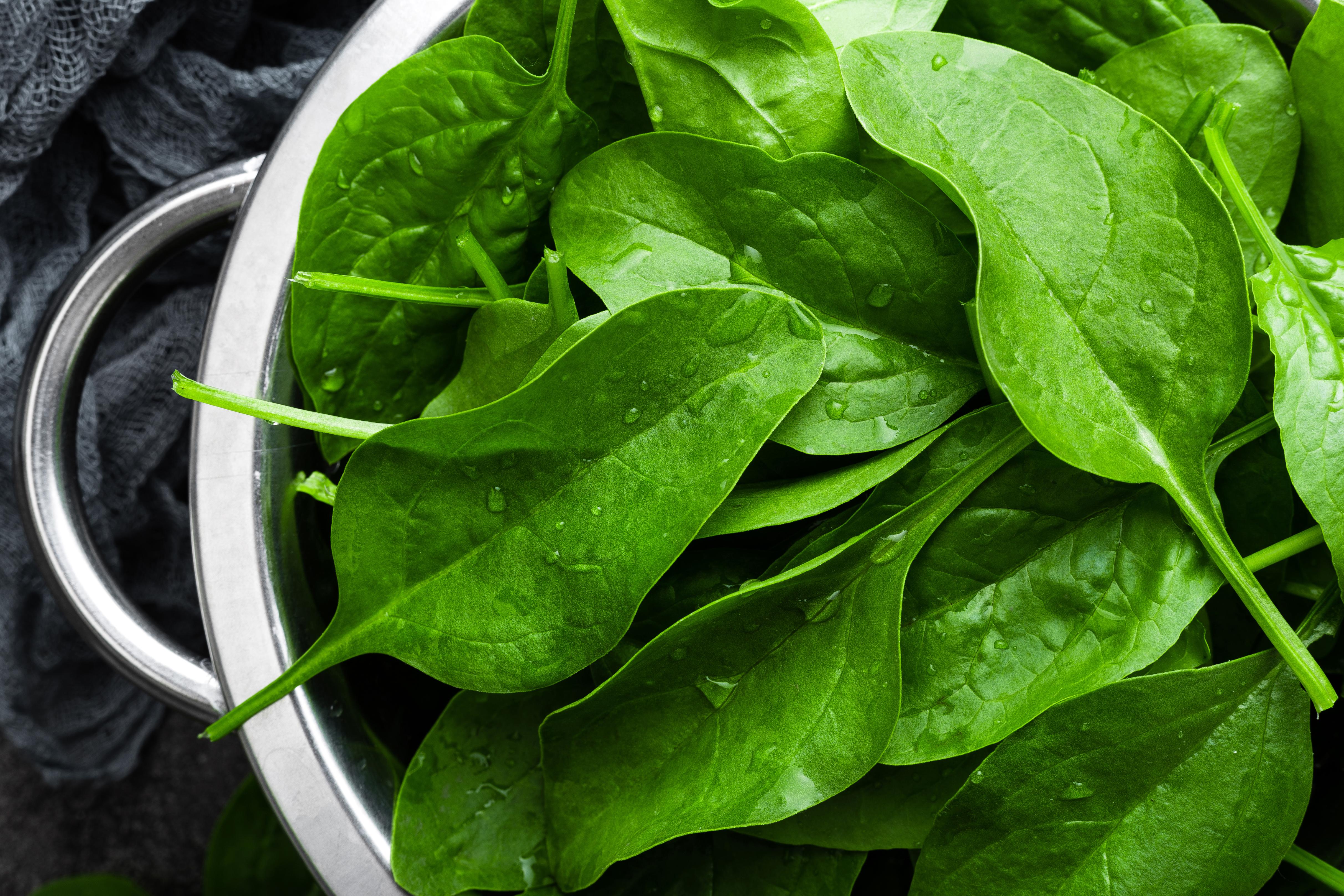
Leafy greens such as spinach, kale, and Swiss chard are rich in vitamins, minerals, and fiber, making them an essential part of a gut-friendly diet. These greens contain folate, vitamin C, vitamin K, and beta-carotene, all of which contribute to a healthy digestive system. The fiber in leafy greens supports regular bowel movements and feeds beneficial gut bacteria. Additionally, leafy greens contain compounds that can help protect the gut lining and reduce the risk of inflammation and digestive disorders. By incorporating a variety of leafy greens into your diet, you can enhance your gut health and overall wellness.
5. Legumes: Protein and Fiber Duo
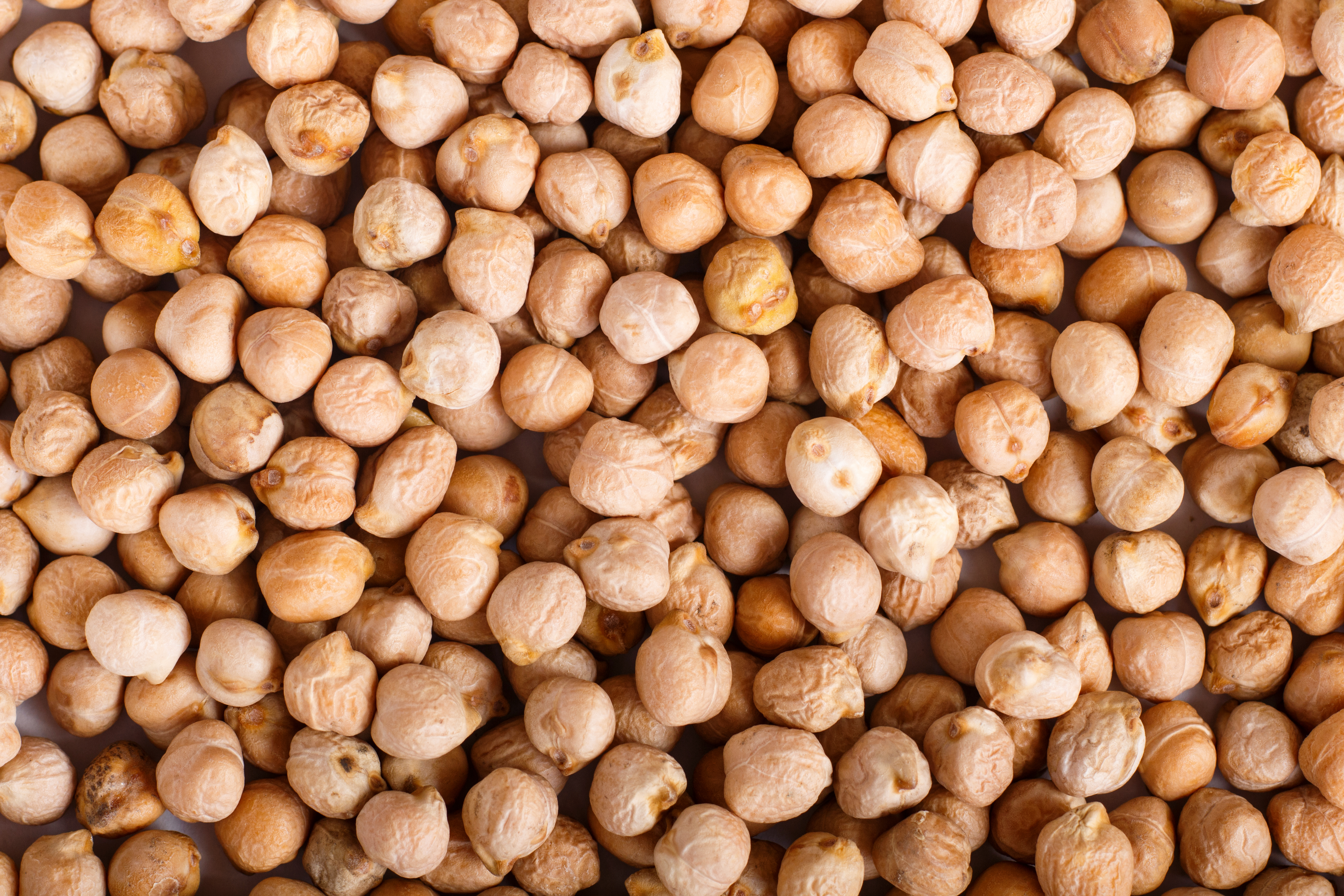
Beans, lentils, and chickpeas are legumes that offer a powerful combination of protein and fiber, both of which are essential for digestive health. The high fiber content in legumes aids in maintaining regular bowel movements and preventing constipation. Additionally, the protein in legumes supports muscle health and repair, which can be beneficial for the digestive tract. Legumes are also a source of prebiotics, which feed the good bacteria in your gut and promote a balanced microbiome. By including legumes in your meals, you can improve digestion, enhance gut health, and enjoy sustained energy throughout the day.
6. Nuts and Seeds: Tiny Powerhouses of Nutrition
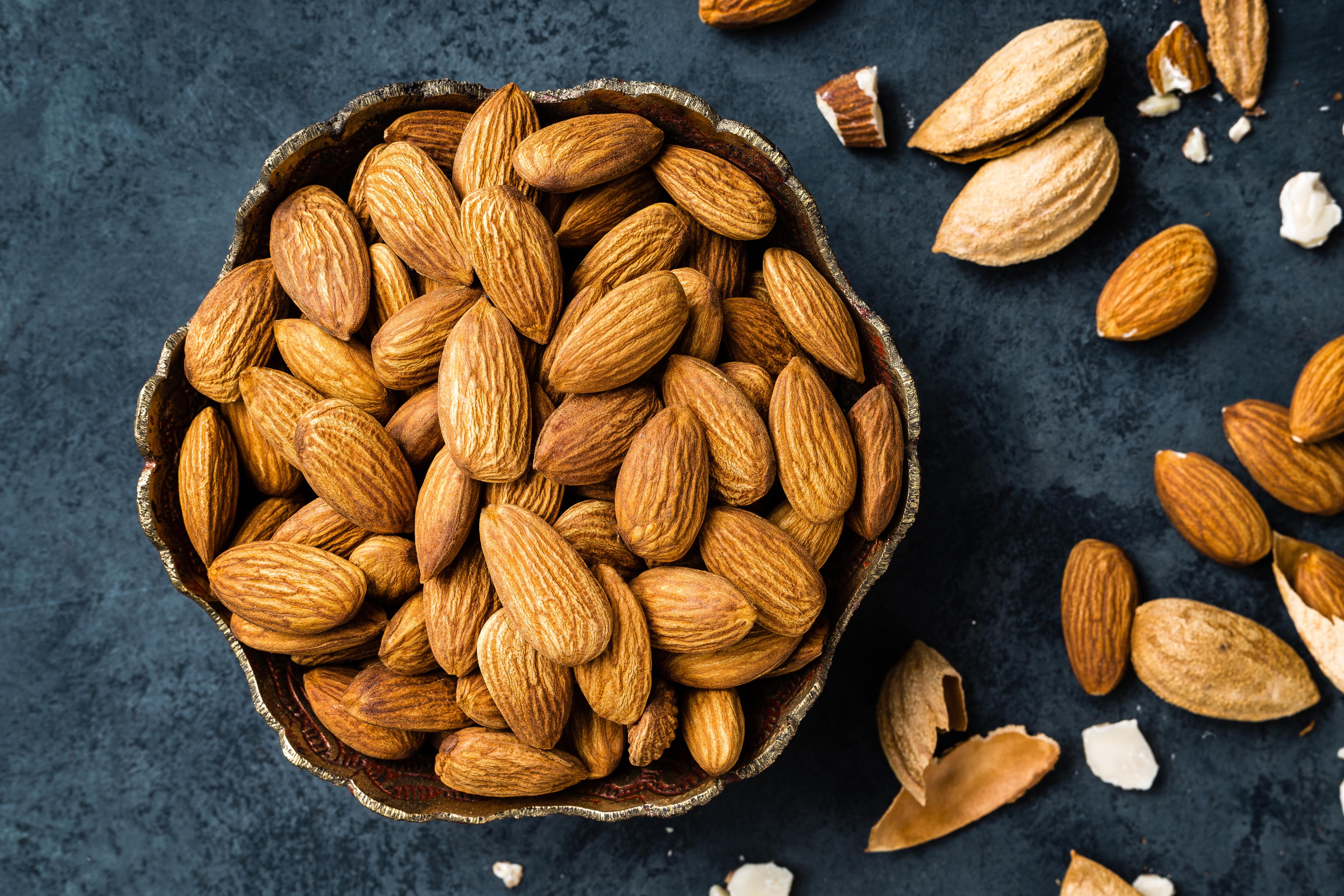
Almonds, walnuts, chia seeds, and flaxseeds are small but mighty contributors to gut health. These foods are rich in fiber, healthy fats, and essential nutrients that support a well-functioning digestive system. The fiber in nuts and seeds promotes regularity, while the healthy fats help reduce inflammation in the gut. Additionally, they are a good source of magnesium, which plays a role in muscle contraction and relaxation, aiding in smooth digestive processes. Incorporating a variety of nuts and seeds into your diet can improve gut health, support heart health, and provide a satisfying crunch to meals and snacks.
7. Ginger: The Soothing Spice
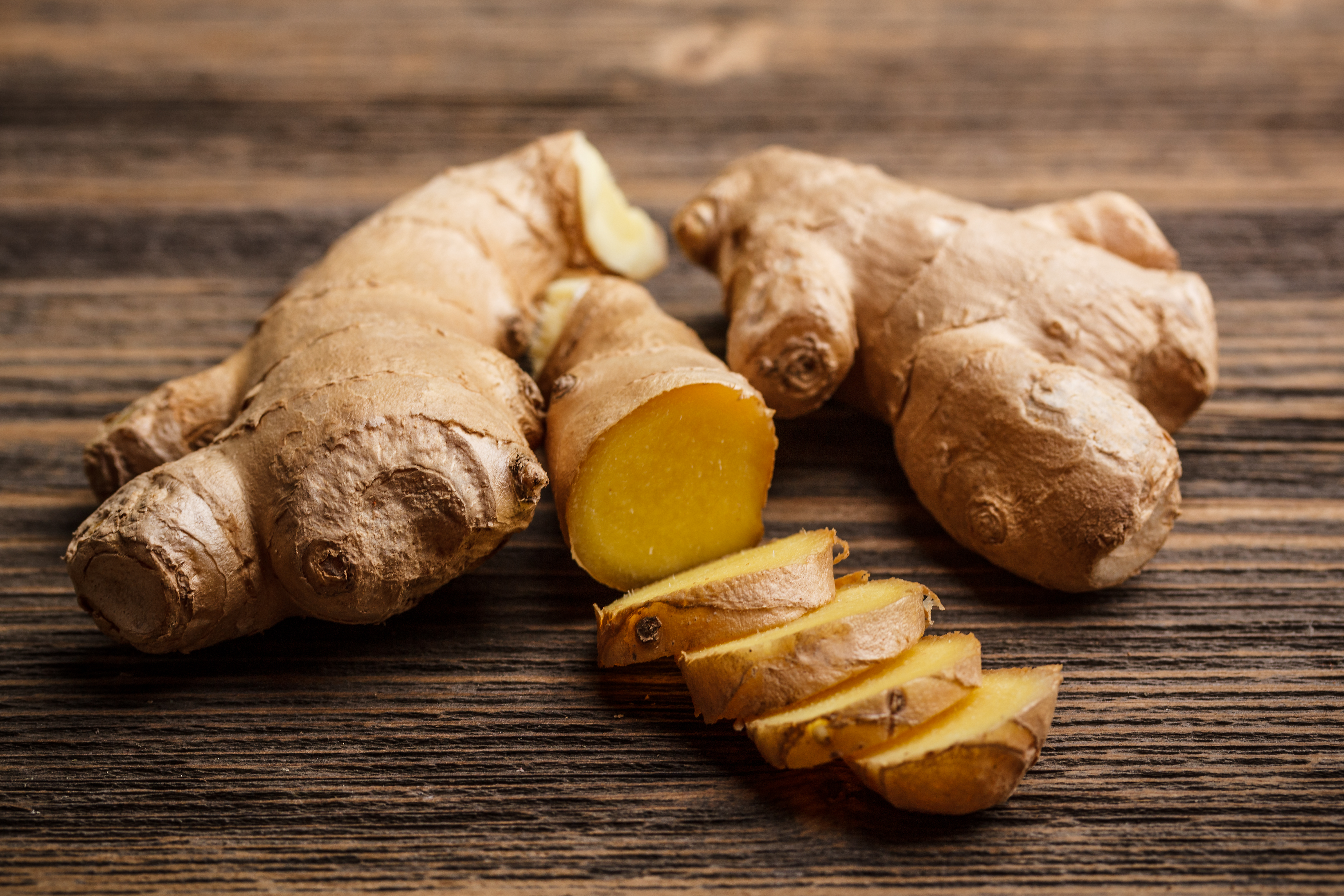
Ginger has been used for centuries as a natural remedy for digestive issues. This aromatic spice contains compounds like gingerol and shogaol, which have anti-inflammatory and antioxidant properties. Ginger can help soothe the digestive tract, reduce nausea, and alleviate symptoms of indigestion and bloating. It also stimulates the production of digestive enzymes, enhancing nutrient absorption. Whether consumed as a tea, added to dishes, or taken as a supplement, ginger can be a comforting addition to your diet, promoting a calm and healthy gut environment.
8. Garlic: The Flavorful Antimicrobial
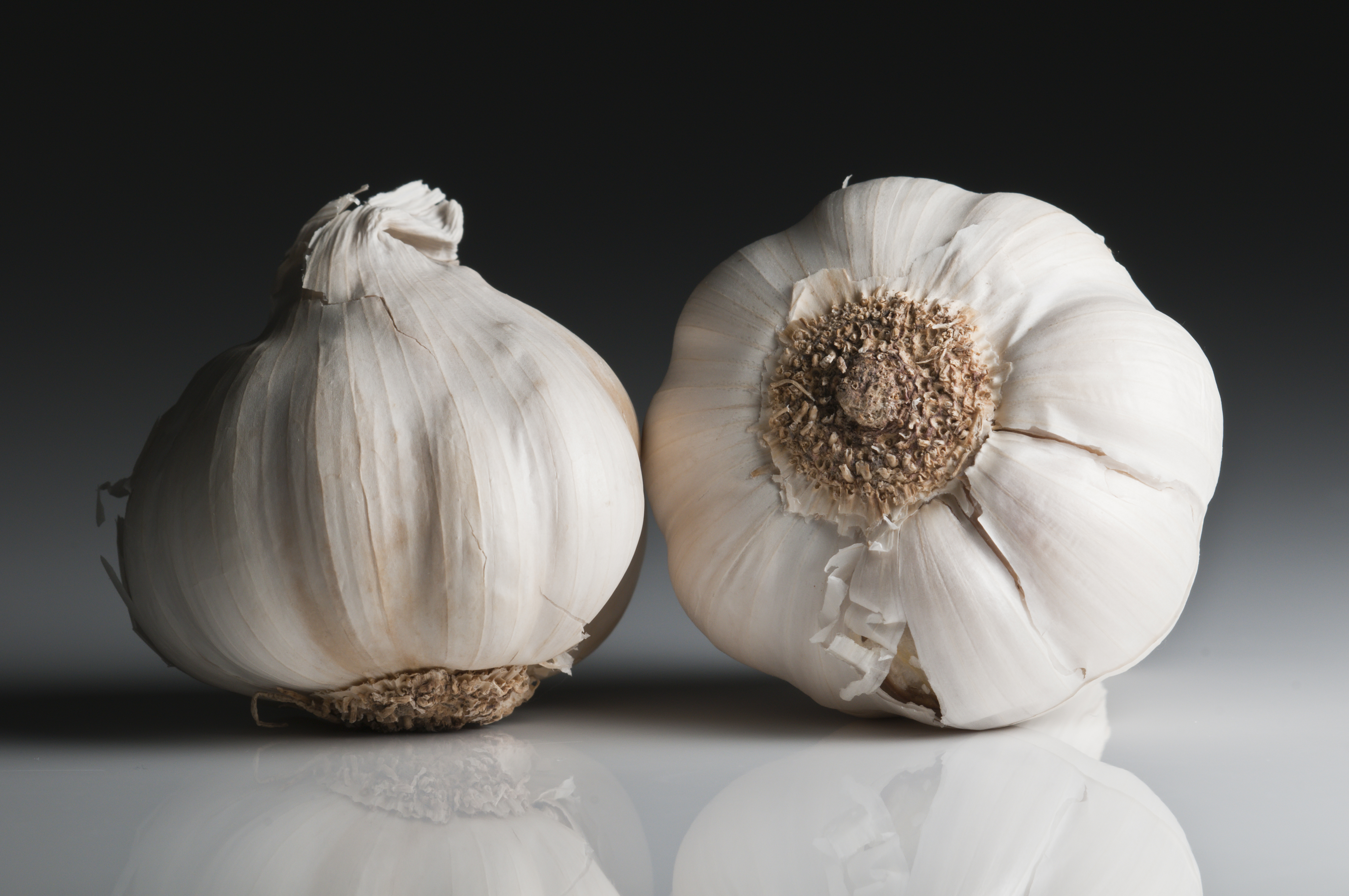
Garlic is not only a culinary staple but also a potent ally for gut health. It contains allicin, a compound with antimicrobial properties that can help maintain a healthy balance of bacteria in the gut. Garlic also acts as a prebiotic, feeding beneficial gut bacteria and supporting a balanced microbiome. Its anti-inflammatory effects can reduce gut inflammation and promote overall digestive health. Adding garlic to your meals can enhance flavor while providing a natural boost to your gut health, making it a delicious and functional food choice.
9. Bone Broth: The Healing Elixir
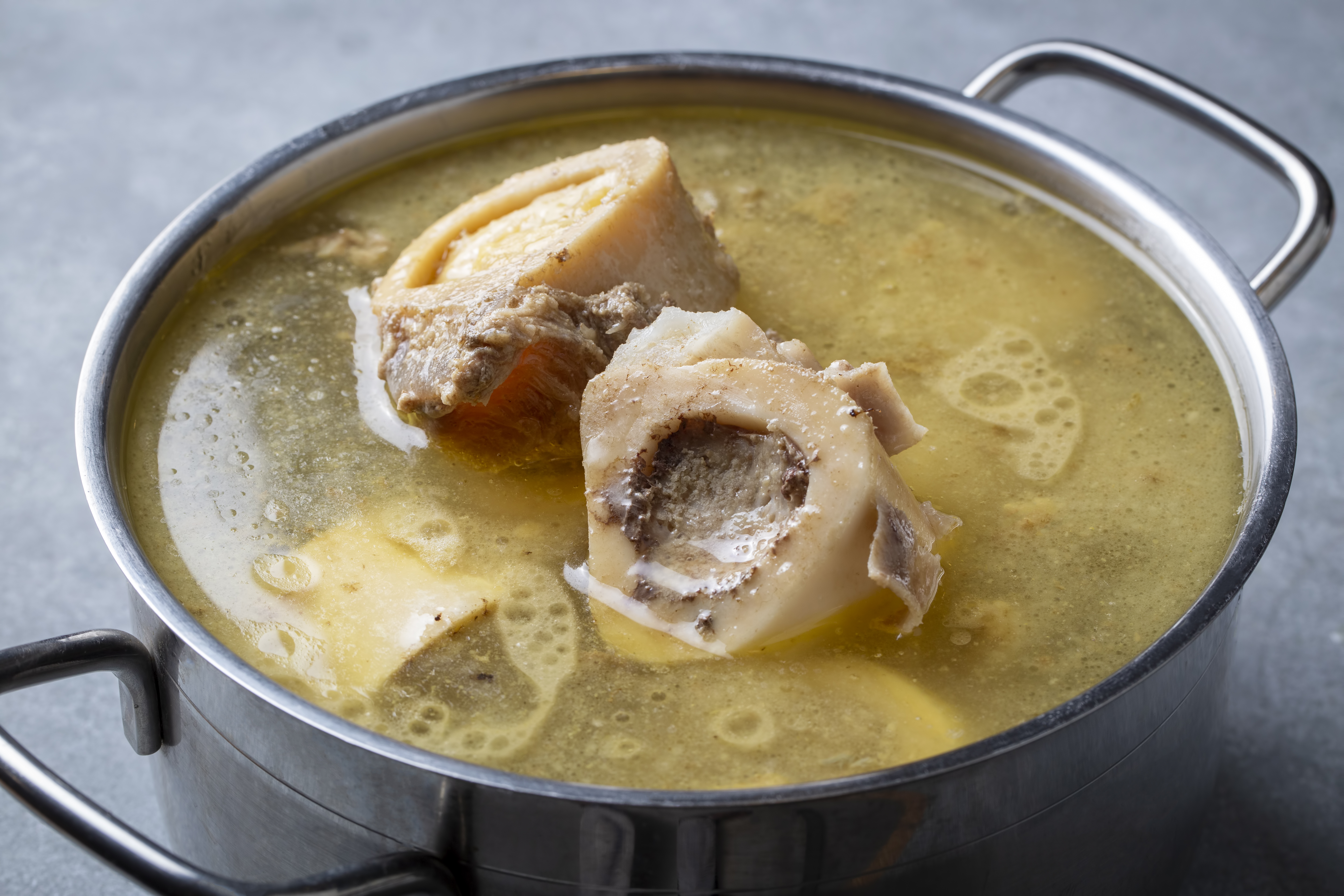
Bone broth is a nutrient-dense liquid made by simmering animal bones and connective tissues. It is rich in collagen, gelatin, and amino acids, which can help heal and strengthen the gut lining. This soothing elixir is known for its ability to reduce inflammation and support the repair of the intestinal wall, making it beneficial for those with leaky gut syndrome or other digestive issues. Bone broth also provides essential minerals like calcium and magnesium, which are important for overall health. Sipping on bone broth or incorporating it into soups and stews can be a comforting way to support gut health.
10. Turmeric: The Golden Healer
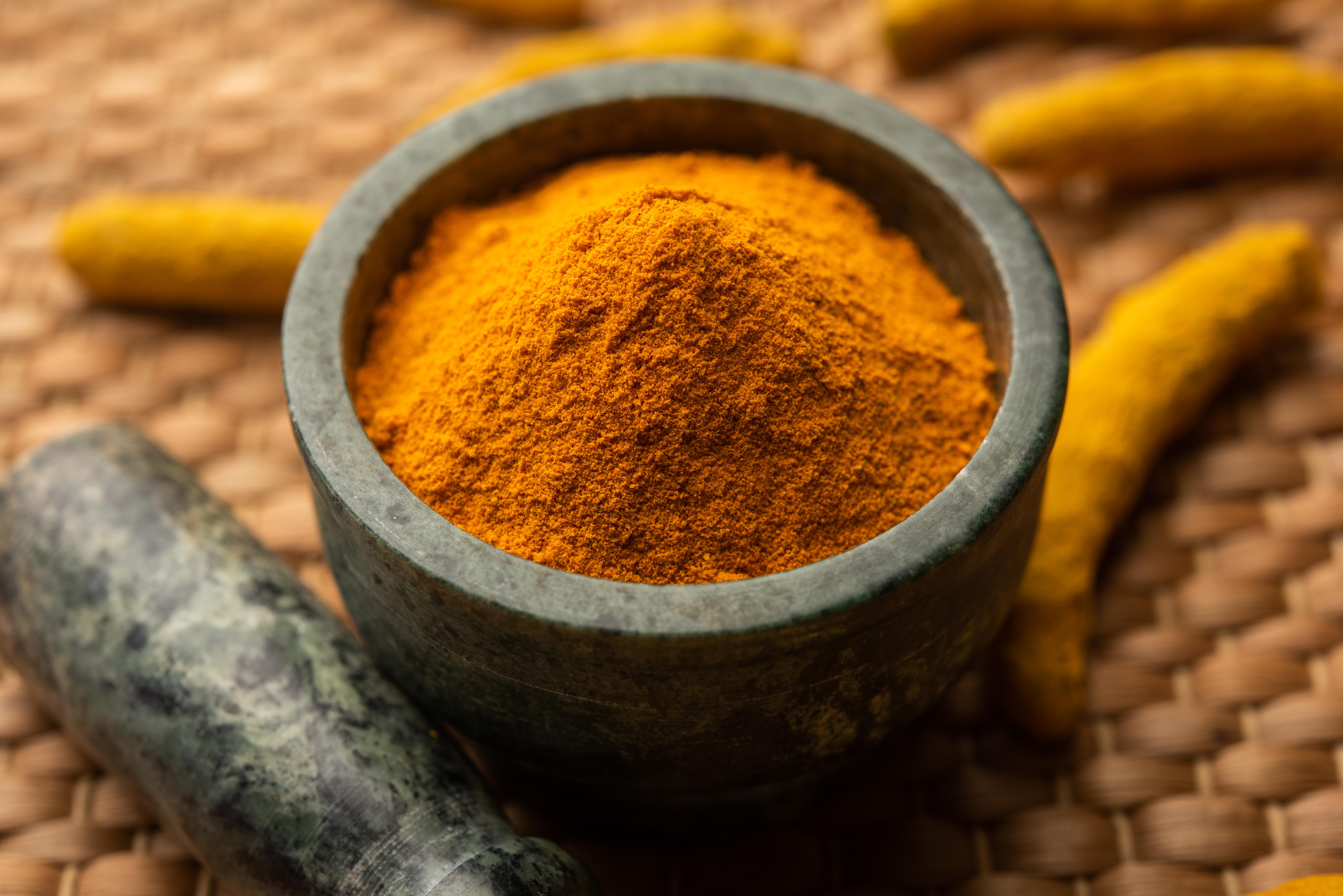
Turmeric, a vibrant yellow spice commonly used in Indian cuisine, is renowned for its anti-inflammatory and antioxidant properties. Curcumin, the active compound in turmeric, can help reduce inflammation in the gut and support a healthy digestive system. Turmeric may also enhance the production of bile, aiding in the digestion of fats and improving nutrient absorption. Adding turmeric to your diet, whether in curries, smoothies, or supplements, can provide a natural boost to gut health and overall well-being, making it a golden addition to your culinary repertoire.
Embracing a Gut-Healthy Lifestyle

Incorporating these 10 digestive dynamo foods into your diet can lead to a happier, healthier gut and, consequently, a healthier you. Each of these foods contributes unique benefits that support a balanced microbiome, enhance nutrient absorption, and promote regular digestion. By embracing a gut-healthy lifestyle, you can improve not only your digestive health but also your immune function, mental well-being, and overall vitality. Remember, a healthy gut is the foundation of overall health, and by savoring these foods, you're taking a delicious step towards a more vibrant life.